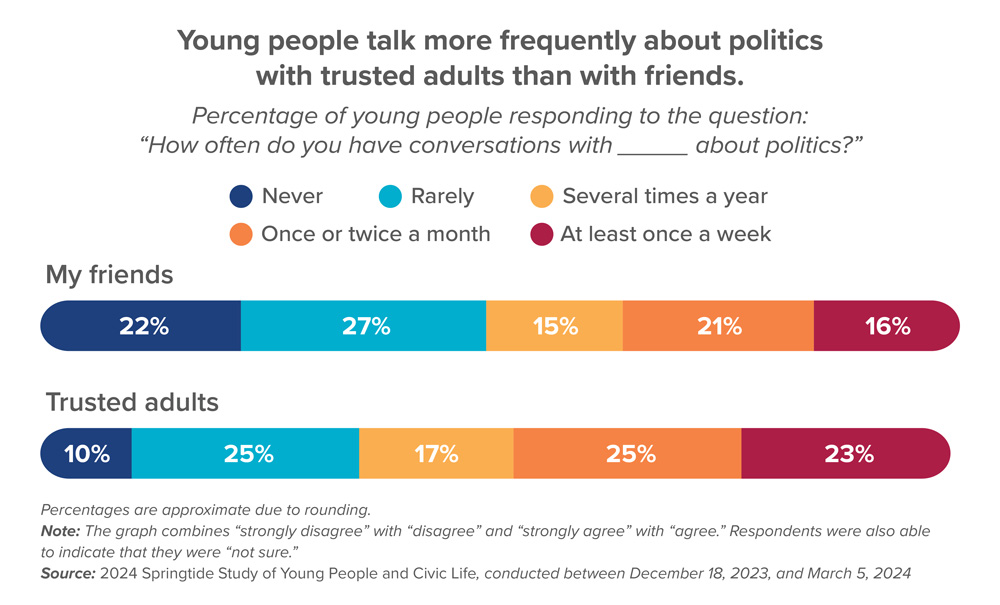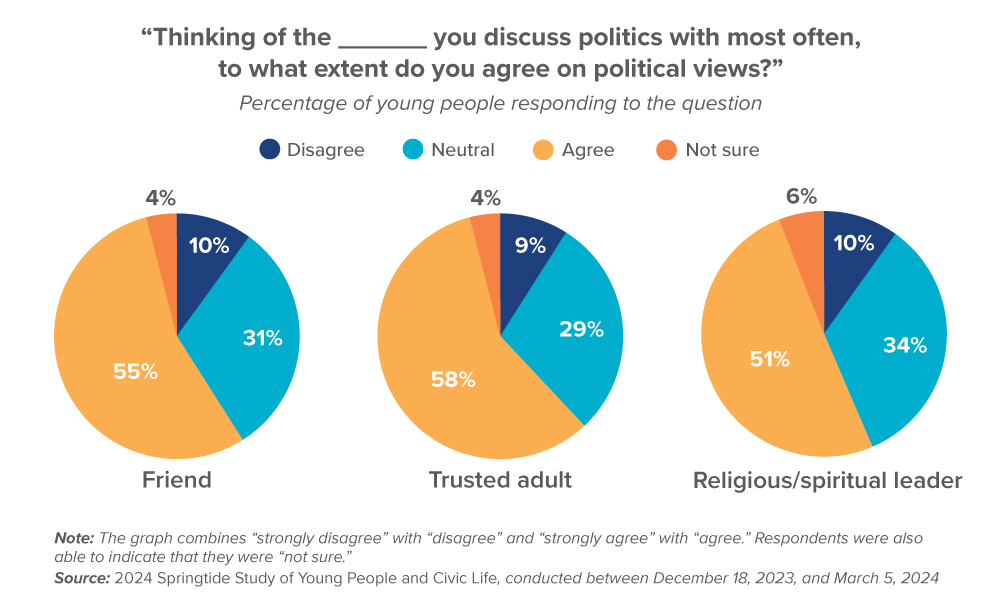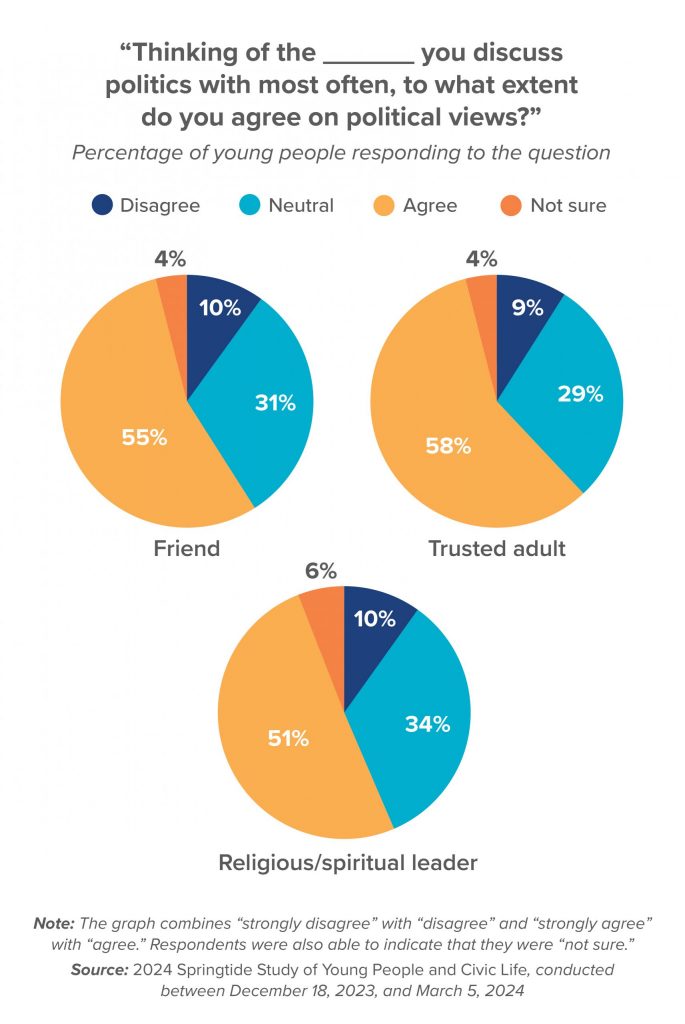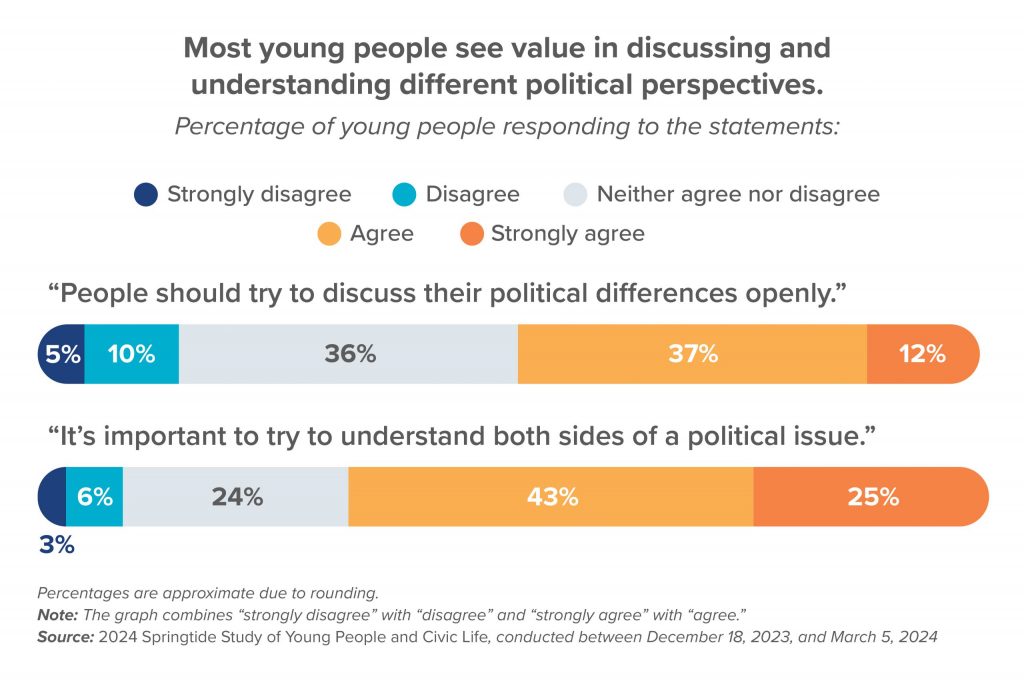
“Let’s just agree to disagree”: How Young People Navigate Political Conversation
Our newest report, Cultivating Care: How & Why Young People Participate in Civic Life, explores young people’s civic lives in the context of care—how they seek and gain knowledge, detangle complex identities from narrow labels, and engage in dialogue and action in ways that feel safe and productive. This post is the fourth in a series that showcases our latest findings, many of which are excerpted directly from the report. Read more about Cultivating Care here.
Never talk politics or religion in mixed company.
For decades, etiquette gurus offered this rule to help people avoid conversation topics that might generate “impolite” dialogue. Adherence to these types of social laws has loosened over the years, but in a society where current political issues are producing polarizing effects, people may choose (once again) to sidestep those conversations.
At Springtide, we asked thousands of young Americans ages 13 to 25 what social and political issues they care about, what motivates them to care, and what propels them to action. Their responses show that the process of caring can be either helped or harmed by the outcomes of political conversation, but they generally see the value in engaging in dialogue.
About half of the young people we surveyed report feeling comfortable sharing their thoughts about politics with adults or peers in their lives. They are just as likely to report comfort talking with adults in their lives as with peers, but they say they engage in these conversations more often with trusted adults.

Like many older adults, young people tend to talk about politics with those who share their political views. Those who report more frequent conversations with trusted adults about politics also report higher levels of agreement with the trusted adults they engage in conversation. The same is true for political conversations with friends and religious leaders.


Yet, young people say that civil conversations can exist with those with whom they disagree, as long as the dialogue demonstrates humility, charity, openness, and respect. Armani, 18, tells a story about how she and her friend disagree about issues: “I’m okay with you having different views as me, as long as we’re allowed to listen and engage in civil discourse, and be open to changing your mind, because I’m open to changing my mind. I change my mind quite often.”

Many of the young people we surveyed express a desire to learn from and find things in common with friends and family who hold opposing political opinions and identities—but sometimes disagreement is inevitable.
Lisa, 21, says: “It would be great if people can find common ground. But I think sometimes it’s okay if people have differing opinions. . . . I find myself saying, ‘Let’s just agree to disagree.’ Because, again, we live in America; everyone is entitled to their own opinions. So, if yours is different from mine, I’m not gonna attack you for it. I just hope you’re educated about it. But I’m just gonna agree to disagree with you. And that’s okay.”
Yet, while young people believe political conversations should go a certain way, their experiences don’t reflect this ideal. Some say they have had too many conversations that feel uncooperative, irrational, and rigid, and therefore choose not to talk politics with others. In these cases, avoiding political talk becomes a way to maintain relationships.
Chloe, 18, tells us that despite agreeing politically with her mom and dad, she doesn’t talk to them about politics “a whole ton.” When she does talk politics, she prefers to do so with her dad instead of her mom because her mom is “very, like, emotionally led and emotionally riled up. So, I don’t really care for that, like, hyperemotional side of politics.” Monica, 19, explains that she avoids political conversations because “the moment you do that, you encounter, like, a thousand enemies. People are so triggered . . . and it shouldn’t be like that because I have the right to have my own views, and you have the right to have yours.”
Learn more about how young people engage in political conversation in our newest report, Cultivating Care: How & Why Young People Participate in Civic Life.



